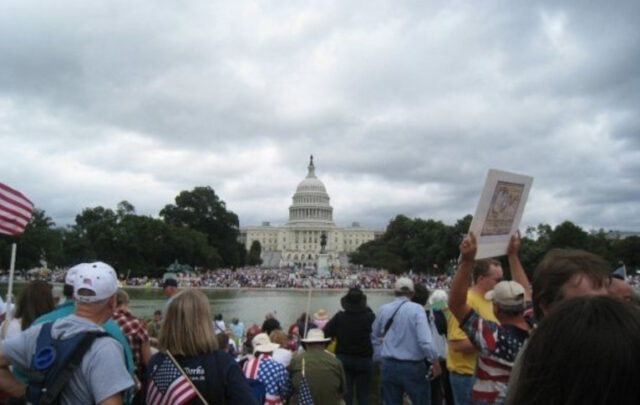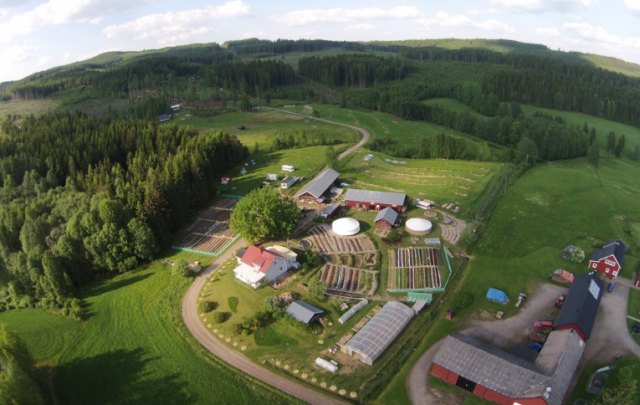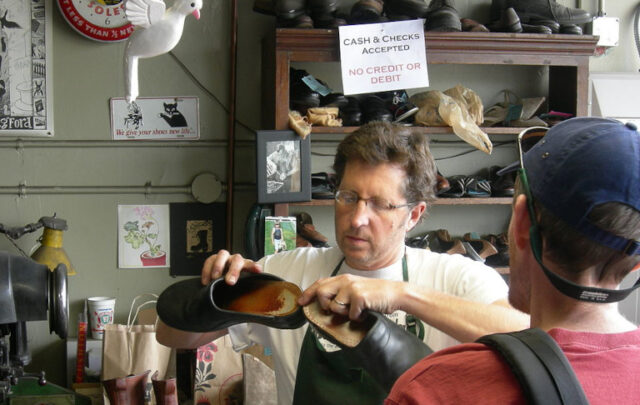Through creative social enterprise, migrant and refugee women in Britain’s second largest city have found a way to celebrate diversity and speak above and beyond the ‘hostile’ headlines, says Emma Daker.
‘I was asking what is my value? I feel exhausted every day. When I start to do the creative work…I feel my heart so strong and bright…It is an opportunity for women to have a change and look for a new direction.’
This quote from a migrant women in Birmingham, the UK’s second largest city, is a fitting way to introduce Shelanu: Women’s Craft Collective. It testifies to the subtle power of craft to build wellbeing and to strengthen communities. The power of such tools, and of creative social movements more generally, is rarely discussed in the strident debates around migration policy in Britain. Indeed the lives of these women are a far cry from Westminster where politicians now debate the new Immigration Bill.
Yet our experience has taught us that craft is a tool to reimagine the city, celebrate diversity and create a culture of welcome in Britain.
Shelanu: ‘belonging to us’
Meaning ‘belonging to us’ in Hebrew, Shelanu is a developing craft social enterprise composed of migrant and refugee women, who meet weekly in the Digbeth area of Birmingham to design and make jewellery to sell. Since its inception, the history and work of Shelanu, and its place and validity in the diverse city of Birmingham, have been under constant development.
Shelanu was initiated in 2010 by Craftspace, a leading craft development organisation. The idea of enabling migrant and refugee women to move from being beneficiaries of arts activities to producers in their own right grew from years of collaborative projects with the Community Integration Partnership (CIP). CIP was an organisation which supported and trained refugee and newly arrived migrant women. It worked with Craftspace on ‘making projects’, finding that, through collaborate creative projects the women’s confidence grew, their English improved and camaraderie developed within the group. The impacts of one of the projects was outlined in a 2008 report on The Arts and Refugees, ‘they began to… see themselves as having the right to enjoy a fulfilled and active life.”
Diversity in the British craft sector
Promoting diversity and accessibility within the contemporary craft sector has always been a key element of Craftspace’s practice since, as it stands, the sector does not reflect the diversity of Britain. This is demonstrated by demographic research by the Crafts Council which ‘indicates a marked lack of diversity in the contemporary craft sector’. Their data reveals that 96% of contemporary makers are predominantly white and that media and leisure habits indicate a predominantly middle class orientation. The research concludes that ‘consequently, improving sector diversity is a key challenge for sector support agencies’.
Progress is already being made. For example, openDemocracy 50.50 recently reported on Mazi Mas, a cooking social enterprise run by migrant women in London which is leading the way in introducing diversity into the gourmet food sector. It demonstrates the huge potential of bringing together craft cultures from around the world, both to contribute to the economy and to reshape our imagining of the city.
A social enterprise to empower women
Craftspace was interested in exploring and promoting alternative routes to making and the marketplace – creative production with social responsibility. Together with CIP, we wanted to develop a social enterprise that would empower women, so that in addition to furthering their own skills they could contribute to their locality. For those asylum seeking women without permission to work in the UK, it represented an opportunity to contribute to the creative economy. Following pilot workshops in 2009 the project began with a series of residencies in May 2010. When Community Integration Partnership closed unexpectedly in late 2010, Craftspace were able to move the group to its base at the Custard Factory and Shelanu launched in its current guise in June 2011 at The Contemporary Craft Festival in Devon.
Craftspace works with Shelanu to provide a safe environment for women from across the city who feel isolated due to migration or displacement. Women feel isolated because they have been forced to come to this country alone, or because they have accompanied their husband or partner but aren’t allowed to work or volunteer themselves, or can’t because they have a family to care for. Consequently it can be hard to meet people or to know where to go to find like-minded people or support, particularly when English isn’t your first language. As a member of Shelanu describes it, ‘In here, with the group of women, I was really pleased. Sometimes you have some new skills that you didn’t know you had, hidden inside of you. Being stuck at home you never know you have it and never use it, but here, in this women’s group you can explore yourself.’
Having previously worked with up to thirty women, Shelanu is currently a core group of six, the majority of whom are quite settled. However the group is keen to expand to support more women, including those in transitory situations who may be seeking asylum or have suffered abuse. We want all migrant women to feel welcome here.
Reimaging the city
The work of Shelanu shows that craft has a power, like any art, of reimaging those things we take for granted around us. And in the current ‘hostile’ climate towards migrants in the UK we want craft to contribute to a reimaging of the diverse city of Birmingham. Members work with practising professional makers to design and make contemporary jewellery inspired by their adopted city. Shelanu member Kinneret says, “It’s a positive way to contribute and find your place in a new place.”
Current members originate from Kurdistan, Hong Kong, China, Israel, Burundi and Montserrat and have migrated due to family situations or to escape conflict amongst other things. With their varied personal experiences the women work collectively and individually, producing work which reinterprets the city’s history or architecture. The potential of this is for Shelanu’s work to create a new sense of place for all people within Birmingham, to generate a vehicle which highlights the potential and creativity that diversity brings to society.
Earlier this year Shelanu successfully completed a commission for The Herbert Art Gallery and Museum shop in Coventry. The limited edition range of laser cut jewellery was inspired by the cathedral and the city’s history as a place of peace and reconciliation following the Blitz during World War Two. Nicola Gauld, who curated the exhibition which the work accompanied, pointed out the links between the women’s personal histories and the history of the city: ‘I was particularly interested to see that the makers had taken inspiration from John Piper’s painting of Coventry Cathedral, which he began the day after it was bombed during the Second World War. I think the fact that Shelanu works with refugee women, many of whom may have direct experience of conflict, makes this commission even more poignant.’
In addition to their individual work, Shelanu created a product range inspired by migration, supported by Birmingham jeweller Rita Patel. 
The enamelled and silver plated ‘Migrating Birds’ pieces have been sold through gallery shops and craft fairs. Visitors and buyers are really interested in the narrative behind the work.
In addition to making jewellery, the members of Shelanu run community workshops, sharing some of the skills they’ve learned with families and other third sector groups. We hope Shelanu offers an alternative to the negative perceptions of migrants and refugees often favoured by the media, which can have such an impact on the way people are treated by the wider community.
A changing situation for migrants and refugees in Birmingham
The situation of migrants and refugees in Birmingham is often changing. Yet fortunately, following setbacks like the closure of a long standing Refugee Centre by the Local Authority in 2011, as David Hurst of Migrant Voice explained at the organisation’s conference in May this year, with a recent change in overall Council administration ‘the tone in rhetoric has changed‘. One committee has been discussing setting up ‘places of welcome’ for new migrants. This refers to Birmingham’s development of a City of Sanctuary offer. City of Sanctuary is ‘a national movement to build a culture of hospitality for people seeking sanctuary in the UK. Its goal is to create a network of towns and cities throughout the UK which are proud to be places of safety, and which include people seeking sanctuary fully in the life of their communities.’ Groups like craft groups and all creative spaces must be part of this effort to welcome people.
The aims of the Local Authority also give cause for optimism that this shared vision for Birmingham city as a welcoming space is being supported by those in power. This year’s Leader’s Policy Statement states, ‘The city’s tremendous diversity and cultural mix has for a long time been one of its great strengths – driving innovation and giving us close links to economies around the world. We must ensure that this economic and social advantage is fully exploited in the years ahead.’ Building social capital through social enterprise is a clear aim which will hopefully put Shelanu in a stronger position to grow within the city.
Although there are challenges, the growth of Shelanu to date has been impressive given the five hours per week the group meets. Since its inception the group has exhibited at Birmingham Museum and Art Gallery, mac birmingham, Rugby Art Gallery & Museum and the Southbank Centre in London. Members have also successfully participated in a number of craft fairs including Christmas Fairs at The Barber Institute of Fine Arts. These events give migrants a crucial voice in a way that speaks above and beyond the headlines.
Craft has a specific role to play in building social and cultural capital. Most people, regardless of their culture or background have some experience of craft or making, at home, within their family or at school. Generally everyone can identify with making through having stories to tell from their families or skills they can share. As a result craft can create a common ground. As Richard Sennett, author of The Craftsman says, ‘The craft of making physical things provides insight into the techniques of experience that can shape our dealings with others…Material challenges like working with resistance or managing ambiguity are instructive in understanding the resistances people harbour to one another or the uncertain boundaries between people.’
Through shared experience of making, the work produced by Shelanu has the potential to contribute to this cultural capital by demonstrating to the wider community that migration is not a new thing in the UK; that migrants and refugees make valuable contributions to the country and its economy.
Shelanu jewellery can be purchased at: www.shelanucollective.co.uk





